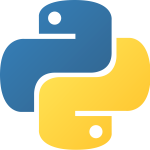Hire remote Elixir developers that you can trust
Hire Elixir developers from a unique network of 50,000+ pre-vetted offshore talents from Europe and Latin America, looking for a full-time contract. YouTeam developers stand apart for their ability to think like product managers and act like software architects. We also manage everything, so there’s zero overhead for your company.
Hire developers138 best Elixir developers for hire on YouTeam in February 2025

Alexander
Java Software Developer
Alexander
Ruby on Rails Back-End Engineer
Nikolay
Software DeveloperStart hiring to
see all talent
Hire
developers

Best Developer
Software DeveloperTrusted by Fortune 500 companies and Y Combinator startups
Why hire Elixir developers with YouTeam
 48-hour personalized matching
YouTeam handpicks the best-matched candidates.
48-hour personalized matching
YouTeam handpicks the best-matched candidates.
 Zero overhead
Locally-compliant contracts and billing
Zero overhead
Locally-compliant contracts and billing
 Dedicated white-glove support
Dedicated white-glove support






How to hire Elixir developers with YouTeam
Share your requirements Set up a quick call with one of our Matching Experts — your dedicated contact at YouTeam.
Undergo Personalized Matching Your Matching Expert curates a candidate list, conducts pre-interviews, and ensures a perfect match for your needs—covering developers' skills, tech stack preferences, interests, and personality.
Meet the right candidates Review a list of candidates screened specifically for your request and pick the best for the interview stage. Average interview-to-hire ratio on YouTeam platforms: 1.75.
Hire and work with confidence YouTeam automates contract signing and invoicing through its secure system. Your dedicated Matching Expert stays with you throughout the collaboration with contractors.

Find developers skilled in related technology
More technologiesAbout Elixir
- What is Elixir?
- Key use cases for Elixir
- Elixir tech stack: Essential tools
- What is the role of an Elixir developer?
- Elixir developer experience levels
- Tasks and responsibilities of Elixir developers
- Skills to look for in an Elixir developer
- Hiring Elixir developers: Hard skills assessment questions
- Elixir developer salaries
- Types of Elixir developers: Freelancers, in-house engineers, and outsourced programmers
- How to write an Elixir developer job description
Elixir is a dynamic, functional programming language designed for building scalable and maintainable applications. Built on the Erlang virtual machine (BEAM), it emphasizes concurrent programming, fault tolerance, and real-time system performance. Elixir is widely used in telecommunications, messaging systems, and web development due to its speed and reliability, making it a popular choice for companies that need systems to handle high concurrency without sacrificing speed.
The main use cases for Elixir revolve around performance-intensive applications that handle large volumes of requests in real time, including:
- Web Development: Elixir’s Phoenix framework is optimized for low-latency web applications, making it a go-to tool for developers building real-time systems such as chat apps, financial platforms, or social media services.
- Distributed Systems: Elixir is widely recognized for creating fault-tolerant distributed systems. Its integration with Erlang’s OTP (Open Telecom Platform) allows for seamless scaling of applications.
- Telecommunications: Given its roots in Erlang, Elixir is often employed in telecom industries where high concurrency and reliability are essential.
To effectively work with Elixir, developers need familiarity with a few essential tools that maximize productivity:
- Elixir and Erlang/OTP: The foundation of any Elixir development, these two enable developers to build fault-tolerant, distributed applications.
- Phoenix Framework: Phoenix is the most popular web framework for Elixir, designed for fast, reliable real-time web applications.
- Ecto: A database wrapper and query generator used for interacting with databases like PostgreSQL, Ecto simplifies data management within Elixir apps.
- Mix: Elixir’s build tool, used for compiling code, managing dependencies, running tests, and handling tasks during development.
- ExUnit: The native testing tool in Elixir, ExUnit is designed for writing and running automated tests within your Elixir codebase.
- LiveView: A framework used to build real-time applications without writing JavaScript, LiveView allows server-side rendering for dynamic web pages.
An Elixir developer is responsible for building high-performance, scalable applications by leveraging Elixir’s concurrent programming features. They design and implement fault-tolerant systems capable of handling thousands of concurrent users without performance loss. Their role often involves backend development, integrating databases, and ensuring robust distributed system architecture, particularly in real-time web applications or industries requiring heavy messaging traffic.
Junior Elixir Developers
Experience: 0–2 years
Skills: Basic understanding of Elixir and its frameworks (e.g., Phoenix). These developers focus on writing clean, maintainable code and are familiar with concurrency, functional programming, and standard web development principles.
Role: Work on simpler tasks like bug fixes, building features under guidance, and integrating APIs.
Mid-Level Elixir Developers
Experience: 3–5 years
Skills: A deeper knowledge of Elixir, Phoenix, and related tools. They are adept at working with real-time systems, handling databases, and optimizing for concurrency and scalability.
Role: Handle more complex features, independently integrate databases, and ensure system performance under load.
Senior Elixir Developers
Experience: 5+ years
Skills: Advanced expertise in Elixir, distributed systems, and concurrency patterns. Senior developers often possess experience in scaling applications, performance tuning, and managing production environments.
Role: Lead teams, manage architecture, make strategic technology decisions, and mentor junior developers.
Elixir developers are involved in a variety of tasks depending on the specific nature of the project:
- Designing Distributed Systems: Elixir developers are expected to design robust systems that can scale efficiently, especially in environments that require high concurrency.
- Backend Development: They build the server-side of applications using Phoenix and Ecto, ensuring smooth communication between the database and user-facing applications.
- Testing and Debugging: With tools like ExUnit, Elixir developers write comprehensive unit tests and debug issues that arise in the application.
- Performance Optimization: Developers focus on tuning their systems for speed and efficiency, often working to minimize latency in real-time applications.
- Collaboration with Teams: Elixir developers work with front-end teams, designers, and other developers to ensure the system aligns with business objectives.
Elixir developers should possess a mix of hard and soft skills, including:
- Proficiency in Elixir and Erlang: The developer should have a deep understanding of Elixir syntax, the BEAM virtual machine, and Erlang/OTP for fault-tolerant, concurrent systems.
- Knowledge of Phoenix Framework: Experience with the Phoenix web framework is essential for any web-based development in Elixir.
- Understanding of Distributed Systems: Familiarity with distributed architecture, supervision trees, and fault tolerance in real-world applications.
- Database Management: Strong knowledge of working with databases like PostgreSQL using Ecto.
- Testing: Developers should be proficient with ExUnit for writing tests, ensuring the system is stable and reliable.
- Problem-Solving: An Elixir developer must be adept at solving complex technical challenges inherent in distributed, concurrent applications.
- Version Control: Knowledge of Git or other version control systems is key for efficient collaboration.
1. Can you explain the architecture of a distributed system using Elixir and OTP?
Expected Answer: The candidate should explain how Elixir’s OTP enables fault-tolerant, distributed systems by using supervision trees and message-passing concurrency models.
2. How do you optimize performance in a high-concurrency Phoenix application?
Expected Answer: Candidates should discuss techniques like process optimization, proper use of GenServer, and load balancing across multiple nodes.
3. What’s your approach to handling real-time functionality in a Phoenix LiveView application?
Expected Answer: They should describe how LiveView enables real-time updates without requiring client-side JavaScript, focusing on server-side performance considerations.
4. Can you describe how you manage database interactions using Ecto in an Elixir application?
Expected Answer: They should outline their experience with migrations, schemas, and writing efficient queries using Ecto.
5. How do you handle fault tolerance in Elixir?
Expected Answer: Developers should explain using OTP constructs like supervisors to automatically restart failing processes, ensuring system reliability.
Salaries for Elixir developers can vary significantly based on geography, experience level, and company size. Here’s a general breakdown:
- United States: Elixir developers in the U.S. typically earn between $90,000 to $160,000 annually, depending on seniority and location. Major tech hubs like San Francisco or New York City offer salaries at the higher end of this range.
- Latin America: In countries like Brazil or Argentina, salaries are more modest, with Elixir developers earning between $40,000 to $80,000 per year. This region is attractive for outsourcing due to cost-effectiveness.
- Eastern Europe: Elixir developers in Poland, Ukraine, or Romania earn between $45,000 to $85,000. The lower cost of living makes these countries popular outsourcing destinations, while still offering highly skilled talent.
When hiring Elixir developers, the type of developer you choose—freelancer, in-house, or outsourced—can greatly impact your project’s cost, timeline, and management.
1. Freelancers
Freelance Elixir developers are ideal for short-term projects where quick deployment or prototyping is needed. They bring flexibility and often offer lower costs. However, the downside is that they may not be fully available, as they typically juggle multiple clients. This model works best when project goals are clearly defined, and extensive ongoing support is not required.
2. In-house Engineers
For companies with a long-term need for Elixir expertise, hiring in-house engineers can be a better option. While more expensive due to salaries, benefits, and overhead, in-house developers are fully dedicated to your project, offering greater control and deeper understanding of your company’s products. This model is ideal for complex, evolving systems that require continuous maintenance and feature development.
3. Outsourced Programmers
Outsourcing Elixir development allows companies to access a global talent pool at lower costs. This is beneficial for startups and businesses looking to build high-concurrency applications without the expense of full-time staff. Outsourcing also helps when there is a shortage of specialized skills locally. However, it can come with challenges such as differences in time zones, cultural communication gaps, and less control over the development process.
Writing a clear and compelling Elixir developer job description is key to attracting top talent. Here’s a simple structure to follow:
1. Job Title: Start with a clear job title like “Elixir Developer” or “Senior Elixir Backend Engineer.”
2. Company Overview: Provide a brief description of your company, the team they’ll be joining, and what you aim to achieve with Elixir.
3. Job Responsibilities:
- Develop and maintain scalable web applications using Elixir and Phoenix.
- Design distributed systems optimized for concurrency and real-time processing.
- Collaborate with front-end and product teams to integrate APIs and optimize user experience.
- Write tests using ExUnit and troubleshoot issues in production environments.
- Contribute to system architecture decisions and ensure fault-tolerant design.
4. Requirements:
- Proficiency in Elixir and Phoenix framework.
- Experience with databases (e.g., PostgreSQL) using Ecto.
- Knowledge of real-time communication tools such as LiveView.
- Understanding of distributed systems, concurrency, and fault tolerance.
- Familiarity with version control (e.g., Git).
5. Preferred Skills:
- Experience with cloud platforms (e.g., AWS, GCP).
- Knowledge of Erlang or other functional programming languages.
- Contributions to open-source projects or community involvement in Elixir-related technologies.
6. Benefits and Compensation: Include details on salary, benefits, and perks like remote work options, flexible hours, or learning and development opportunities.
FAQ about Hiring Elixir developer
Why choose YouTeam to hire Elixir developers?
YouTeam offers access to a highly qualified pool of Elixir developers, helping you scale your team quickly. Each developer is thoroughly vetted, ensuring their skills, experience, and reliability. With partnerships across 500+ development agencies and over 50,000 developers, you can receive qualified candidates within 48 hours, making it a fast and reliable solution for your hiring needs.
How does YouTeam vet Elixir developers?
YouTeam follows a multi-stage vetting process. First, developers are sourced from trusted development agencies, ensuring they meet the necessary skill and experience requirements. Pre-screened candidates are then forwarded to clients for further interviews, allowing them to select the best fit based on specific project needs.
How much does it cost to hire the best Elixir developers through YouTeam?
The cost of hiring Elixir developers on YouTeam varies based on factors like expertise, location, and skills. On average, an Elixir developer through YouTeam charges around $50 per hour, though rates can fluctuate depending on specific project requirements.
How quickly can you hire with YouTeam?
With YouTeam, you can hire developers faster than traditional methods. Here’s why:
1. Shortlist in 48 hours: Powered by our AI Matchmaker and human experts, we deliver a tailored shortlist of vetted candidates within just 48 hours.
2. Larger talent pool: As a marketplace, YouTeam offers access to a broader range of developers from hundreds of partner agencies, giving you more options than typical outsourcing agencies.
3. Seamless process: From the moment you request a call, our Matching Experts handle the rest, ensuring you quickly receive top-quality candidates who match your precise requirements.
YouTeam helps its clients build development teams within just a few weeks, not months.
What is the no-risk trial period for YouTeam developers?
1-Month Trial: You can terminate the engagement at any time during the first month.
Free Replacements: If you’d like to replace a contractor, we’ll do it within two weeks, free of charge.
You can learn more by reading our Money-Back Guarantee.
How is YouTeam different from freelance portals for hiring Elixir developers?
Unlike freelance platforms, YouTeam connects you with developers from trusted software development agencies, not freelancers. This ensures that developers have the necessary technical and soft skills, along with relevant experience. If a developer needs to be replaced unexpectedly, YouTeam can quickly provide a substitute of equal skill to avoid project delays.
Reviews
“It's just much more convenient to find a small team. I talk to one person, get 5 hand-picked CVs, interview candidates, hire the best ones – and I’m done!”
“Every time YouTeam sends me a list of potential developers, I am confident that I can interview pretty much anybody and they will be a good candidate.”
“The decision to use YouTeam was made by comparing them directly to the other candidates. As soon as I started talking to them, YouTeam adopted a hands-on approach. Time-wise, YouTeam also performed well.”
“We will definitely continue with them in the future. I’m so happy with their work that I’ve recommended them to my other company as well. There were no issues, it was really good. I gave a very loose brief, and the developer who worked for me had enough initiative to tighten it up by asking relevant questions. There was no messing around—it was done really well, with good, clean code.”
“YouTeam was very quick and responsive. I was presented with great candidates in just days, which was fantastic for me because we were looking to move fast. They had experience working on similar projects to exactly what we needed.”
“We wanted to boost our capacity for a period of six to twelve months. I decided to get a shot with YouTeam is that in any other place I can't say that I'm looking for a team of 5 developers with the possibility to scale. Now I returned to them again - this time for the confidence. If somebody is on the YouTube platform, you know that they've met a certain threshold of customer satisfaction, they've got a history of successful work elsewhere.”










